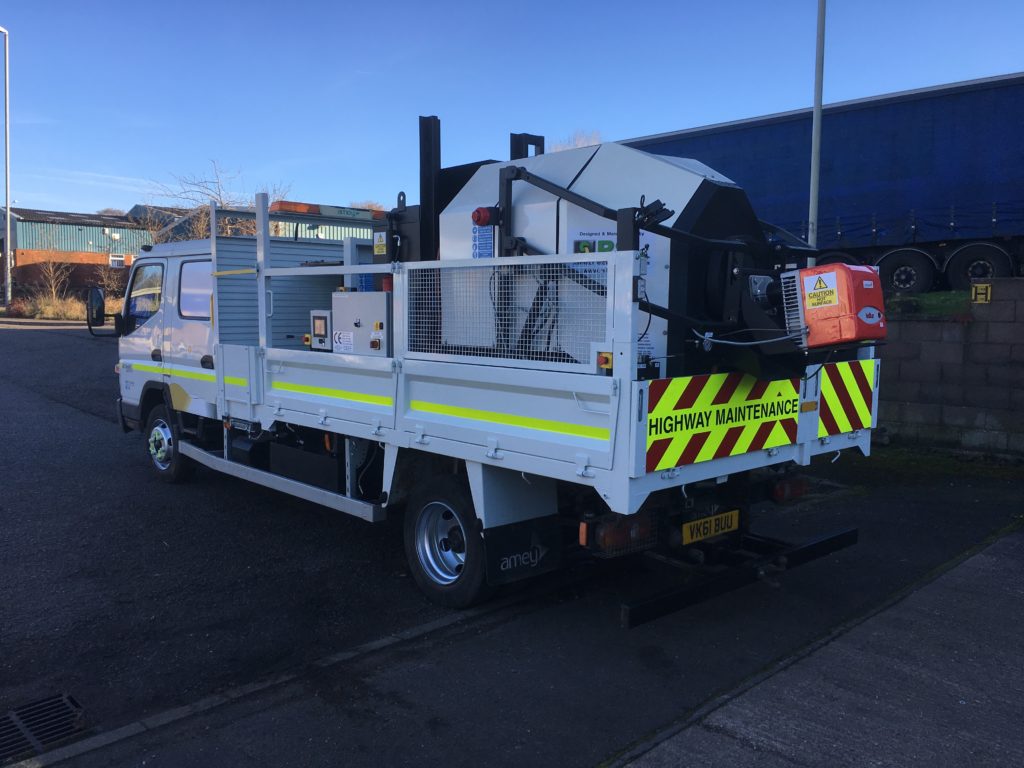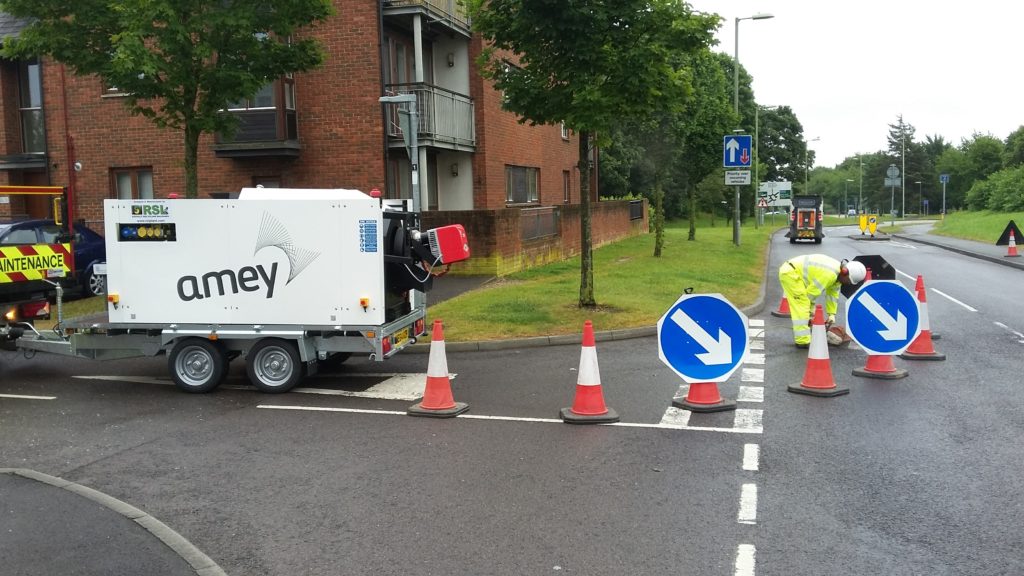Recent developments in both mobile asphalt heaters and materials have enabled the mixing of small quantities of asphalt at the point of use for minor highways defects and utility reinstatements.
This history of small hot asphalt mixers dates back to 1999, when Leicestershire County Council first approached RSL Fabrications to manufacture a machine that could be used to reheat pavement breakout material for re-use as a base layer on a housing estate. The innovation was a success and led to the development of larger static machines for this purpose.

Latterly there has been increasing interest from Tier 1 contractors to develop smaller mobile machines. Amey, for example, recognised the value of this technology to overcome the practical and commercial issues relating to completing small volume one-time hot permanent repairs for minor highway defects and utility reinstatements.
Traditionally this involves collecting small volumes of asphalt from permanently located asphalt plants, often far from the site, leading to significant costs and material wastage.
The use of asphalt heaters provides the ability to manufacture the exact volume of fresh, highly workable asphalt required 24/7 and at the point of use, overcoming out-of-hours issues and reducing costs and wastage.
In late 2015, Amey introduced the first prototype machine into its utility business in the North West. The asphalt heater provided a 250kg batch cycle capacity and was fed with pre-packed asphalt. Having proved the concept, Amey then worked closely with the manufacturer to improve the design and capability of the machines. During 2016, additional 250kg machines were added to the fleet, along with larger 500kg and 1,000kg versions.
David Ogden, Business Director at Amey, said: “This is exciting new technology, which we have developed with RSL Fabrications, and which we are now using on many of our highways accounts.
“Because we are no longer relying on asphalt plants to be open to get our supply of material, we are also now able to work during antisocial hours, which is good news for our customers as it means less disruption during the working day.”
While Amey optimised mixer performance, it also realised the importance of optimising the asphalt mix behaviour and availability of suitable product for its expanding fleet of asphalt heaters. At this stage Tarmac became involved and, using its in-house R&D facilities and expertise, began to formulate a material that was equivalent to bulk delivered asphalt, compliant with the same specifications and overcame concerns with regard to any potential detrimental impact on the bitumen during onsite reheating of the bagged asphalt.

Tarmac embraced the initiative and the R&D process moved swiftly from concept and laboratory trials to full plant manufacturing at its Mancetter asphalt plant in Warwickshire, in conjunction with the Amey mixers, in a matter of a few weeks. Having demonstrated that the asphalt met all the required criteria, both as a bulk asphalt and in 20kg bags, network trials began in early 2017.
“In spring 2017, we launched the pre-packed Ultipatch Sitemix range, which includes asphalt concrete mixes, SMA and HRA Surface Course,” said Brian Kent, National Technical Director at Tarmac.
“The asphalts are now in use on highway and utilities contracts, in conjunction with RSL and Roadmender mobile heaters and we have completed network trials with Roadtech’s low volume mixer as well.
“The introduction of this innovative approach to asphalt has opened up a new way of working to the industry and has demonstrated the value of supplier/contractor collaboration in terms of tackling an issue effectively and quickly.”

 CONTACT US
CONTACT US SUBSCRIBE
SUBSCRIBE FOLLOW US
FOLLOW US LINKEDIN
LINKEDIN